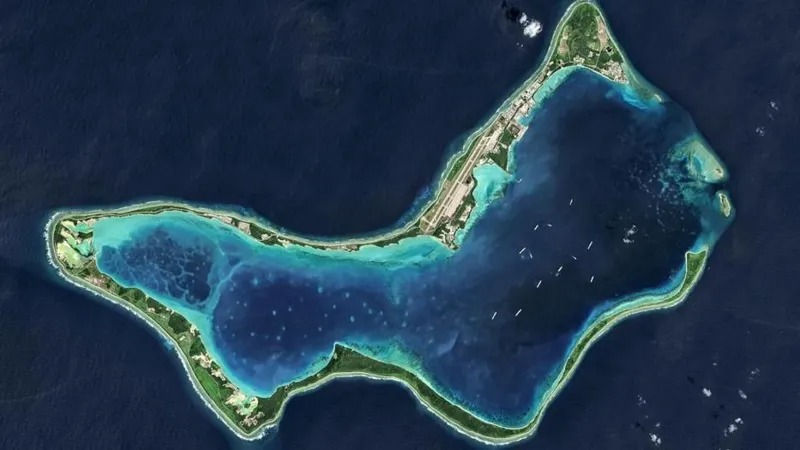Mauritius Submits Revised Proposals on Chagos Islands Agreement to the UK
- Geeshan Mudalige
- Dec 20, 2024
- 3 min read
By G. Mudalige, Jadetimes Staff
G. Mudalige is a Jadetimes news reporter covering Technology & Innovation

The newly elected Prime Minister of Mauritius, Navin Ramgoolam, has sent revised proposals to the United Kingdom regarding the future of the Chagos Islands, asserting that the original agreement did not sufficiently serve Mauritius’ national interests. The initial deal, finalized in October under former Prime Minister Pravind Jugnauth, stipulated that the UK would transfer sovereignty of the archipelago to Mauritius while retaining a 99-year lease over Diego Garcia, home to a significant UK-US military base.
However, the agreement has faced scrutiny on multiple fronts. Domestically, Ramgoolam voiced concerns that the deal, negotiated just before a landslide election defeat for his predecessor, fell short of the benefits Mauritius could reasonably expect. Speaking in the Mauritian Parliament, Ramgoolam disclosed that his government had reviewed the agreement with legal experts and submitted counter-proposals to the UK. Although he did not detail the amendments, the Prime Minister emphasized that the revised terms aim to ensure that any final agreement aligns with the nation’s long-term interests.
In the UK, the deal has also drawn criticism, particularly from the opposition Conservative Party. Senior members, including shadow defence and foreign secretaries, described the agreement as disadvantageous to the UK, arguing that it undermines British sovereignty over the British Indian Ocean Territory (BIOT). They also questioned the legal justification for surrendering sovereignty, accusing the government of effectively paying Mauritius for an arrangement that compromises British strategic interests.
The contentious nature of the lease on Diego Garcia has been a focal point in discussions. Arvin Boolell, Mauritius’ Minister of Agro-Industry and Fisheries, criticized the original agreement for granting what he perceived as excessive concessions to the UK. Boolell claimed that while the publicized lease duration was 99 years, the terms effectively allowed the UK to maintain control over Diego Garcia for 200 years, framing the deal as disproportionately advantageous to Britain.
Diplomatic efforts to resolve the dispute have intensified. A UK delegation, led by Harriet Mathews, Director General for Africa, the Americas, and Overseas Territories, recently visited Mauritius to continue negotiations. While UK officials, including Prime Minister Sir Keir Starmer, have expressed optimism about the deal, stating that it serves both nations’ interests, there is no set timeline for its finalization.
The dispute over the Chagos Islands has long been a point of contention. Mauritius has consistently argued that it was coerced into ceding the islands to the UK in exchange for independence in 1968.
The UK had already arranged a secret deal with the US to lease Diego Garcia as a military base, a decision that led to the forced removal of over 1,000 Chagos islanders. Although Britain later apologized for the displacement, it has faced growing international pressure to relinquish its claim to the archipelago. United Nations bodies, including the International Court of Justice and the General Assembly, have overwhelmingly sided with Mauritius, describing the UK’s continued control as a vestige of colonialism.
This ongoing negotiation reflects the broader complexities of addressing historical injustices while balancing strategic and diplomatic interests. For Mauritius, reclaiming the Chagos Islands represents not only a legal victory but also a restoration of sovereignty and justice for displaced communities. For the UK, the challenge lies in navigating domestic opposition, international criticism, and maintaining its strategic alliances.

































Comments